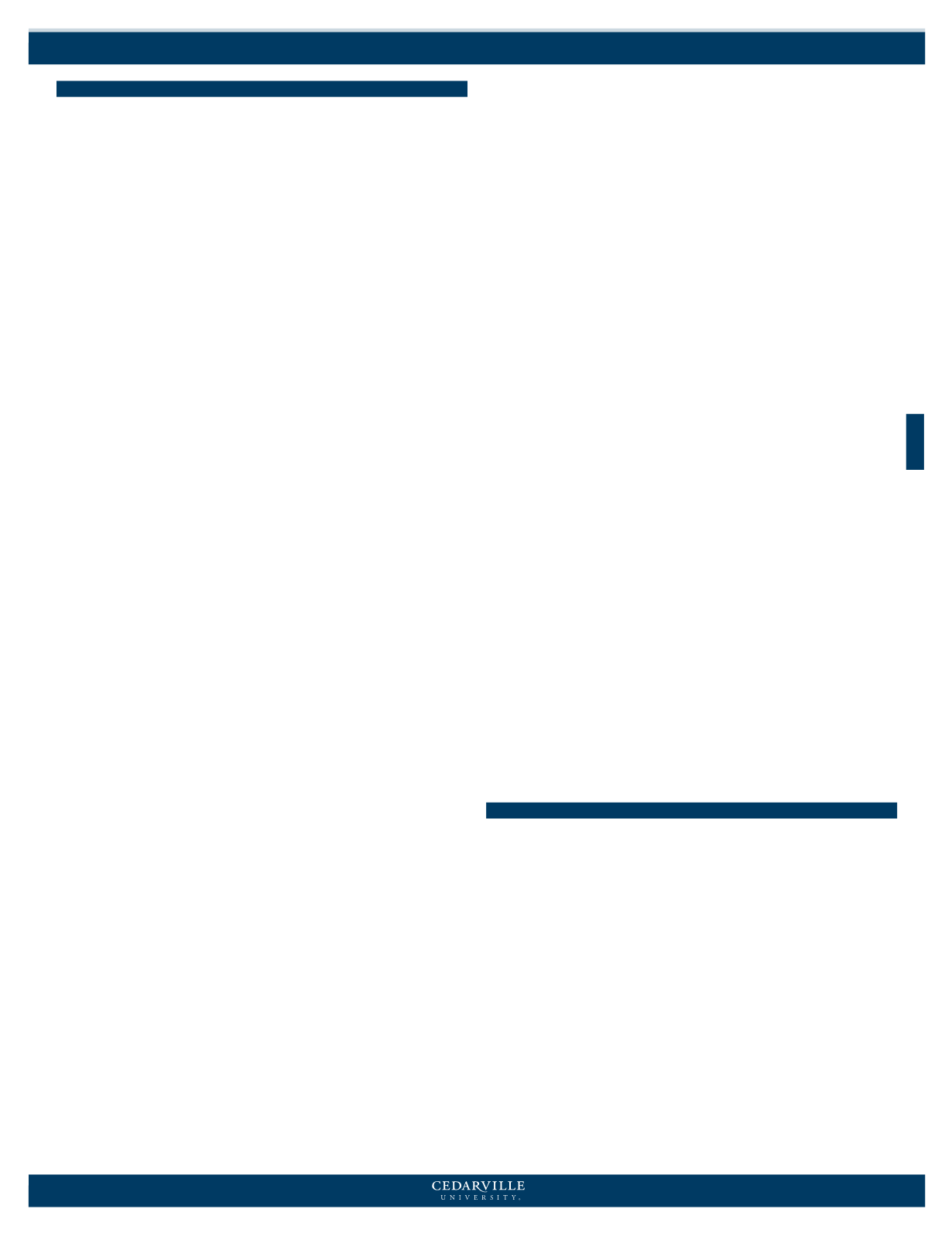

Linguistics (LING)
LING-2070 Introduction to Linguistics
–Sp
2 hours
This introduction to the study of linguistics provides an
opportunity for students to become familiar with the tenets,
concepts, and theories of the field of study. It additionally
acquaints students with the practical side of the study of linguistics
in disciplines such as philosophy and biblical languages, English
and writing, cultural studies, mathematics, information technology,
computer science, education and psychology, electronic media,
and teaching English to speakers of other languages.
LING-3080 Linguistics for Language Learning
–Fa
3 hours
An analytical approach of language functioning applicable
to learning any second language. Using theoretical-based
approaches, the emphasis is on English language variations,
phonology, morphology, and syntax. The student is also introduced
to various theories of second (new) language acquisition at
different age/grade levels. Second (new) language study as a
means of personal development and the importance of second
(new) language learning in modern society are addressed.
Prerequisite: degree-seeking students only; sophomore, junior, or
senior status only.
LING-3082 Phonetics
–Fa
3 hours
Phonetics is the study and classification of speech sounds,
within the broader study of phonology, the study of the sound
system of language. This course builds on the theories of
phonology and provides opportunities for practical application of
the theories. Students will work with the International Phonetic
Alphabet (IPA) in classifying sounds in standard and nonstandard
forms of English and will consider and classify the sounds of other
languages.
Prerequisites: LING-2070 Introduction to Linguistics;
LING-3080 Linguistics for Language Learning.
LING-3090 Sociolinguistics
–Sp
3 hours
An overview of the relationship between language and
society. Topics covered include ethnicity, social contact, change,
and issues related to minority students such as education,
immigration, migration, demographics, and historical and legal
precedents. The student will also gain knowledge and cultural
understanding of minority groups in Ohio. (even years)
LING-3100 Principles of Language Acquisition
–Fa
3 hours
The practical side of the study of linguistics is the study of how
language is acquired, both by children learning to speak and
by adults learning a second language. This course will present
the basic theories of both types of language acquisition and will
provide students the opportunity to do original research in the
field.
Prerequisite: degree-seeking students only; sophomore,
junior, or senior status only. LING-3080 Linguistics for Language
Learning.
LING-3500
2 hours
Methods of Teaching Foreign Language
–Fa
Designed around ACTFL’s Standards of Foreign Language
learning, this course prepares students to teach in the K–12 world
language classroom and also to teach English as a new language.
In this course, students will examine the purposes and objectives
along with the methods and curricular models appropriate for
the K–12 world language classroom, as well as adult-level
language teaching. This course addresses theories of second
language acquisition and how language learning looks different
at the various stages of a language learner’s life. Using theory to
inform practice, students will learn to plan and assess for student
learning, including the creation of learning activities, assessments,
lesson plans, and thematic unit plans, as well as evaluating and
providing feedback to maximize student learning. Students will
also gain insight into the importance of understanding one’s own
language, culture, and worldview as a means to understanding
the language, culture, and worldview of the target peoples and the
important role that cultural understanding plays in communication.
This course will prepare students to plan, teach, and assess
effectively in today’s rapidly changing classroom. Open to students
majoring in multi-age Spanish education or linguistics, and those
minoring in TESOL.
Prerequisites: degree-seeking students only;
sophomore, junior, or senior status only; LING-3100 Principles
of Language Acquisition; permission of instructor or adviser.
(crosslisted with SPAN-3500)
LING-3710
2 hours
TESOL Practicum for Non-Education Majors
–Sp
Practice teaching of ESL under general supervision of master
teacher for non-education majors who are completing TESOL
minor requirements.
Prerequisite: degree-seeking students only;
sophomore, junior, or senior status only; COM-2140 Intercultural
Communication; ENG-3070 English Grammar; LING-3080
Linguistics for Language Learning; LING-3500 Methods of
Teaching Foreign Language.
Credit/No credit. (Fee: $45)
LING-4100
3 hours
Advanced Linguistics/Field Methods
–Sp
This course is the capstone course for the major in linguistics. In
this course, students will put into practical application the theories
and concepts learned while completing the requirements for the
major.
Prerequisites: LING-2070 Introduction to Linguistics; LING-
3080 Linguistics for Language Learning; LING-3082 Phonetics;
LING-3090 Sociolinguistics; LING-3100 Principles of Language
Acquisition.
Literature (LIT)
LIT-1990 First-Year Seminar
3 hours
This course will provide instruction in the close reading of and
the analytical writing about literary texts.
Prerequisites: ENG-1400
Composition.
LIT-2090 Literary Analysis
–Fa, Sp
3 hours
Introductory study of contextual analysis. This course is
primarily intended for adolescent and young adult integrated
language arts and English majors as preparation for upper-division
literature courses.
Prerequisite: LIT-1990 First-Year Seminar
LIT-2120 History of Literary Criticism
–Sp
3 hours
A study of the rich philosophic heritage of the West, this course
is designed to familiarize students with the writers whose works
have defined the critical canon as the result of the way they
addressed three questions: What is the function of literature? What
is the role of an author? How do we evaluate literature? Featured
writers will range from Plato, Aristotle, and Augustine to Lewis,
Eliot, and Bakhtin.
Prerequisite: ENG-1400 Composition.
2016–17 Undergraduate Academic Catalog
Page
241
Course Descriptions
LING-2070 – LIT-2120
ENGLISH, LITERATURE, AND MODERN LANGUAGES



















